March 2023: Olive Tree

Volume VII/Issue 12/March 2023


From The Editorial Desk
On Lenten Practices
We are now on the season of Lent. Quadragesima or 40 days of preparation for Easter. Lent is a preparation for Easter just as Advent season to Christmas. Why we are emphasizing this? Because many are focus on the preparation but when the actual feast comes, few are celebrating specially Easter Vigil. But we are Easter people not Lenten people. Alleluia is our song said St. Agustine. Therefore, good friday rites are not the end itself. Yet many are fascinated with Christ on the cross and sepulchre than the Christ of Easter. It shows that many are inclined to meditate on the suffering of Christ than His glory. But Christianity is a religion of Joy not just sorrow.
Prophet Isaiah explicitly stated " This, rather, is the fasting that I wish: releasing those bound unjustly, untying the thongs of the yoke, setting the oppressed, I breaking every yoke, sharing your bread with the hungry, sheltering the oppressed and the homeless, Clothing the naked when you see them..." ( Isaiah 58: 6-7 ).
The real essence of fasting is charity. You deprived your self of meals and snacks so that the money you save will go to almsgiving. Its not just of deprivation of meals for the sake of deprivation. There is a pastor who imitated our Lord in 40 day fasting. Without water and without food. But after wards he expired. Self-denial is linked to almsgiving. So goes with prayer. Prayer is only a vehicle toward Charity which is the end." If you bring your gift to the altar and there recall that your brother has anything against you, leave your gift at the altar, go first to be reconciled with your brother, and then come and offer your gift. " ( Matthew 5:23 ). Prayer should lead us to reconciliation and forgiveness. Thus, in Pater Noster, we pray, "and forgive us our trespasses as we forgive those who trespass against us."
Hence, Lenten season, as a 40 -day preparation for Easter , should form us into the deification, we become more like Christ. Becoming like Christ means becoming a loving person in thoughts, words and deeds. Prayer, fasting and almsgiving are instrumental to be coming like Christ.

What Are You Feeding?
Imagine a farmer who decides to experiment because feed prices are so high. He takes 20 calves, separating them into two pens with ten calves in each. The first set of calves he consistently feeds with high-quality feed. The second set of calves is not fed. You don’t need to be a farmer to know the result. One group of calves will grow and thrive while the other set will weaken and die.
If a farmer tried this, we would say he is foolish. But I’m ashamed to report how many times I have tried this same experiment in my life. It isn’t with calves or something of little value, but with something far more critical, my spiritual life.
Solomon was a man with everything going for him. He had a father who was a man after God’s own heart. He had God’s special endowment of wisdom, giving him unprecedented discernment; but he had a problem. He brought wicked women into his life. He fed a relationship with them instead of his relationship with God, which eventually ruined him. He also fed his desire for all things of earthly pleasure; later in life, he admitted that it was all vanity and vexation of spirit.
King Saul was another man that started well. He was small in his own eyes and followed God. After he was king, the children of Belial despised him, but he held his peace (1Sa 10:27). However, years later, he stopped feeding his confidence in, and relationship with God; instead, feeding his jealousy and hatred of God's chosen replacement king. It destroyed his peace and, eventually, his life and the lives of many others around him.
King David brings inspiration to many through the many Psalms that he wrote. But he isn’t without some scars on his reputation. He fed the wrong thing in his life several times, leading him to failure. But praise the Lord, he repented and turned back to God. The Psalms give us a peek inside David’s heart. I have often been blessed by David’s practice of turning to God when in difficulty. He was guaranteed freedom from his mental distress because of what he fed his heart with. Yet the LORD will command his lovingkindness in the daytime, and in the night his song shall be with me, and my prayer unto the God of my life. I will say unto God my rock, Why hast thou forgotten me? Why go I mourning because of the oppression of the enemy? As with a sword in my bones, mine enemies reproach me; while they say daily unto me, Where is thy God? Why art thou cast down, O my soul? And why art thou disquieted within me? Hope thou in God: for I shall yet praise him, who is the health of my countenance, and my God (Psa 42:8-11). David frequently talks about his distress and troubles, but invariably he would turn his focus away from his problems, praising God for Who He is and placing his hope in Him.
Too many times in life, we wonder why we are struggling. We wonder why our spiritual life is apathetic. Look at what we are feeding, the answer might be simple. You can’t feed your carnal man while starving your spiritual man and expect your spiritual man to be strong and healthy. But put on the Lord Jesus Christ, and make no provision for the flesh, to gratify its lustful desires. (Rom 13:14).
You can’t shorten your personal spiritual devotions while reading the news and wasting time on your phone and expect your spiritual life not to show the results. You can’t feed on carnal music all week long and expect to be inspired by the music in church on Sunday. You can’t dwell on your fears about the future while avoiding God’s promises and expect to have a healthy emotional life. You can’t continually focus on the flat spots of your spouse and children and expect to keep treating them kindly.
For if you live according to the flesh, you shall die: but if by the Spirit you mortify the deeds of the flesh, you shall live. (Rom 8:13). The more we starve our flesh and feed our spiritual man, the stronger our spiritual man will grow and the weaker our flesh will become. As we spend time reading God’s Word, meditating on it, praying the rosary, we can expect spiritual growth. The serious question for all of us is, what are we feeding in our lives?

A Brook in the Way
“The Lord said unto my Lord, sit thou at my right hand, until I make thine enemies thy footstool. The Lord shall send the rod of thy strength out of Zion: rule thou in the midst of thine enemies. Thy people shall be willing in the day of thy power, in the beauties of holiness from the womb of the morning: Thou hast the dew of thy youth. The Lord hath sworn, and will not repent, Thou art a priest for ever after the order of Melchizedek. The Lord at thy right hand shall strike through kings in the day of his wrath. He shall judge among the heathen, He shall fill the places with dead bodies; He shall wound the heads over many countries. he shall drink of the brook in the way: therefore shall He lift up the head.” Psalm 110
This Psalm looks forward to the coming of Christ in Bethlehem. The Psalmist is projecting his vision to the first coming of Jesus. It pictures the week of suffering that is called the Passion Week. (This is found in Psalm 109, as well). It pictures the week of suffering from the time that He set His face toward Jerusalem to be crucified, buried and then to rise from the dead. It is pictured as a journey. He was going for the last time. Oh, how he must have suffered as He realized that His days were numbered! Then came the awful time of suffering in Gethsemane, when the perspiration fell like drops of blood from His brow. Then as He went on to Caiaphas’ court where He was tried in a mock trial, and on to Pilate, from Pilate on to Herod, then back to Pilate. There was the scourging with the cat-o’-nine-tails, a long whip with nine different prongs on it. He was hit 39 times across the back. Isaiah 52:14 says that He was beaten so much that you could not tell that He was a human being. Following that, the cross was placed upon Him and He was led up to Calvary. There was the crucifixion, and there was the shame and suffering on the cross, the nakedness and the dogs licking His wounds, the back-handing and the plucking of His beard, the mocking, the making fun of Him as a king, the crown of thorns on His head, and the other events that tell of the suffering of the Lord Jesus Christ.
In this awful time of suffering, we find an unusual statement, “He shall drink of the brook in the way.” This brook symbolizes a refreshing drink of water. That brook is a stream that has fresh water from which one need not fear to take a drink.
This Psalm is likened to a king in battle. There is a king leading his forces. The day is hot. The desert is arid and dry, and the king comes to a place where there is a refreshing brook. He says, “There is a brook in the way”. the king stops on a hot day, and gets the refreshment of the brook.
Now what is the “brook in the way” of Christ?
This brook is a little stream that runs across the week of suffering in the life of Jesus Christ. Get the picture, very carefully, and you will find a beautiful truth. Here is Jesus in His week of suffering. It is not a time to laugh. There is no enjoyment as far as we can see. Everything is dark and gloomy, the suffering of shame, the suffering of the crown of thorns, the suffering of the agonies of the cross. It is a week we call “a week of passion”. Yet trickling across that week of passion, like a brook in the way, something refreshed Him. Something delighted Jesus in that week of suffering, and it is called, “a brook in the way”. Like a fresh stream would bring refreshment to a weary traveler, there was something trickling across the path of Jesus, in the darkest week of His life, so that it was like a “brook in the way”.
What was this refreshing oasis over which Jesus crossed, that gave him refreshment like a brook in the way? Was it the home of Mary and Martha, where He spent His last night before being tried? Was it the home of Mary and Martha and Lazarus where they served Him, worshipped Him, cooked for Him, and loved Him? Was that the oasis? I do not know. maybe it was. Maybe this brook in the way, this little refreshing stream of water, this stream that trickled across the path of Jesus, was the wonderful time spent with Mary and Martha and Lazarus in their home. I do not know.
What was this refreshing oasis? What was that refreshing brook in the way?
What was the refreshing oasis that crossed the path of our Lord through the week of suffering?
Was it the thief who cried for mercy by saying, “Lord, remember me when thou comest into thy kingdom”?
Jesus replied, “Today thou shalt be with me in Paradise”.
Was not Jesus dying that sinners might be saved? Was not this the purpose for which he came into the world? Even now, in his death, there cries a thief, “Lord, don’t forget me. Remember me when thou comest into thy kingdom.” Was this the brook in the way? Maybe it was.
Was it the women who stayed until the end? Peter was out cursing in the garden. Judas had betrayed him with a kiss on his brow. The disciples had forsaken him and fled Thank God, a little handful of women stood beside the cross. They tried to give him something to help his sufferings, and they did give their loyalty. Was this the brook in the way? I do not know.
The Bible does not tell us what it was. We do not know exactly what it was, but we do know there was something in the week of suffering of Jesus Christ that was a refreshing to Him as a spring would be to a weary traveler going across a desert. It was a brook in the way. I do not know what it was, and I shall not advance to you what I think it was, but I would like to suggest two thoughts to you.
I. EVERY CHRISTIAN SHOULD BE A BROOK IN THE WAY
So many times in my life I have met such brooks. Have you in your life been withered down with your load of heartaches and problems? Have you thought life was not worth living? Have you wondered if you could make the day? Then suddenly in a wonderful way, God sent to you a person who was a brook in the way. Maybe a smile when no one else was smiling, maybe a pat on the back when no one else would give it, maybe an encouraging word when no one else could quite give an encouraging word, was to you like a brook in the way. Don’t you think it would be a wonderful thing to help the weary traveler, help carry his load with a pat on the back, a smile, or an “I love you”, or maybe a helping hand? You and I should be a brook in the way for others.
Everybody is having a difficult time. There ought to be some brooks. There ought to be some people to cheer others on the way. There ought to be some folks who are brooks in the way. Everybody is having a tough time. Everybody is having problems. Nobody needs your insults. Nobody needs your crabby disposition. Nobody needs your slander. everybody is having a tough time; everybody is afraid about heart attacks; and everybody is afraid about cancer; everybody is concerned about war; everybody has a heart that is heavy and broken. Let’s see to it that every one of us is a brook in the way, to encourage people in a time of suffering and sorrow.
II. HAVE A BROOK IN THE WAY
What do I mean? I mean this: You should have a brook in the way. I know you are having it rough. I know you have troubles and problems, difficulties and heartaches. I know that, but have a brook in the way.
What is the ‘brook in the way’ for me?” One brook in the way should be your Parish. The Parish ought to be a brook in the way. What do I mean by that? I mean that your parish should be the kind of a place that can be a brook in the way to all who attend. When you walk in the doors of your parish, you should feel refreshed. The Parish is a brook in the way.
There are folks whose hearts are heavy and broken and who are discouraged and lonely. There ought to be a brook in the way as the mass is being offered up, as we sing, pray, fellowship, and preach.
The Parish needs to be a brook in the way, not a stagnant stream. We do not want to have a cesspool We want to have something you can drink and be refreshed.” When you come to a Catholic Church, you should be able to have a place where you can lay your burdens down for awhile and rejoice that we serve a living Saviour! There are people who will be at mass that are sick, I mean, very sick. They do not know how long they will live. I say, “Oh, my God, let the Catholic church be a brook in their way. In their time of suffering, may there appear a refreshing stream across their path like what trickled across the path of our Lord Jesus Christ.” may the worship service be a refreshing brook in their path like a refreshment in a dreary world or an oasis for a traveler on a desert. may this be a brook in the way.
In a time of suffering, when your heart is the heaviest, may it always be that when you come to Church, there will be that lilt, delight, joy and thrill that will make the service refreshing, not some kind of funeral where you come feeling bad and you go away feeling worse.
There are people at mass who will face a day for the first time without a father or a mother. There are people at mass who will face the rest of their life without a husband or without a wife for the first time. There are people who will face the future without a delight or joy, but with a dread because of a prodigal child who has left the faith. They have burdens and heartaches. God has placed across the path a place, a Parish, the Church, where they can come and feel the refreshment of the brook in the way.
There are wives and children who will be beaten or abused when they get home. As the choir sings, as the Mass is offered up, and as the sermon is given, may the worship service be to them a brook in the way.
There are folks who have had loved ones die. They need a brook in the way.
There are those who lay loved ones in the grave. There are aged people who live alone and need a brook in the way. What this broken and sinful world needs this morning is a brook in the way!
Now wait a minute. A brook is to carry water. Jesus said, “I am the living water”. Are you thirsty? Are you thirsty for something that you have not found? You are thirsting for Christ and you do not know it. Have you sought peace in the world? You will not find it there. You are thirsting for Christ and do not know it, for He is the living Water! He is that refreshing brook. No one has ever come to Christ and been disappointed because Christ has always quenched everybody’s thirst. “All you that thirst, come to the waters ”, said God in Isaiah 55:1. In Revelation 22:17 we find, “He that thirsteth, let him come: and he that will, let him take the water of life, freely”. If you are thirsting for something in life, come to Christ and find in him a brook in the way.
He is that refreshment in the hour of trial. He is that load carrier in times of a heavy load. He is that burden bearer in times of burdens. He is that comforter in time of sorrow and bereavement. He is a brook in the way.
Lastly let me say this. Allow yourself to be a brook in the way.
Look all around you,
Find someone in need,
Help somebody today.
Though it be a little,
A neighborly deed,
Help somebody today.
Help somebody today,
Somebody along life’s way.
Let sorrow be ended,
The friendless befriended,
Oh, help somebody today!
Be that little brook that crosses the path of sorrow.

The Dying Vatican II Religion
Satanists in Idaho Planning Capitol “Ritual” to Protest Bill
A group of satanists is opposing the “Vulnerable Child Protection Act,” a bill that would make the dispensing of experimental puberty blockers and performing sex-change operations on youth—both of which can lead to sterilization—a felony. If the bill passes both chambers of the state legislature and is signed into law by Governor Brad Little, it would mean anyone convicted of performing such procedures could face up to 10 years in prison.…A satanic group in Boise announced plans to hold a so-called “gender-affirming ritual” at the State Capitol building in protest.…More than 80 bills have been introduced in 26 states in a bid to limit or criminalize body-disfiguring sex-change surgeries and other procedures for minors.
Colorado Cake Artist Loses Again in Transgender Case
A Colorado court has again rejected cake designer Jack Phillips’ effort to defend the freedom to conduct his business according to his Christian beliefs. The Colorado Court of Appeals ruled…(January 26) that Phillips’ refusal to create a custom cake for a gender transition celebration is not protected by the free speech clause of the U.S. Constitution’s First Amendment. The three-judge panel also unanimously agreed a state law prohibiting discrimination based on transgender status does not violate the free exercise of religion.… The appeals court’s ruling is the latest in a succession of court proceedings initiated more than a decade ago regarding Phillips’ decision not to design cakes he believes would communicate a message that conflicts with his faith.
Taking Babies Who Survive Abortions to Hospitals Is “Dangerous” (Congressman Nadler)
House Democrats posed an absurd claim [January 11] in opposition to the Born Alive Abortion Survivors Protection Act, claiming that requiring a newborn baby to be taken to the hospital somehow “endangers” the child’s life. U.S. Representatives Jerry Nadler (D-New York) and Jan Schakowsky (D-Illinois) both made the claim on the House floor after Republican leaders brought the pro-life bill forward for debate. “The problem with this bill is that it endangers some infants by stating that that infant must immediately be brought to the hospital,” Nadler asserted. Later, he added, “It directs and mandates certain medical care, which may not be appropriate, which may be endanger [sic] the life of an infant in certain circumstances.” The claim is absurd on its face, but that did not stop Schakowsky from making a similar comment. “[This bill] requires immediately taking a struggling baby to a hospital,” she claimed. “That hospital could be hours away and could be detrimental to the life of that baby. This is nothing more than part of the effort to make abortion illegal nationally in this country. I object and I urge a no vote.” The bill…just makes sure that babies who survive abortions receive proper medical care. Dozens, perhaps hundreds, of babies survive abortions every year in the United States, but protections for these infants are limited. The Born Alive Abortion Survivors Protection Act would require that babies who survive abortions receive the same medical attention that would be given to any other baby born at the same gestational age. The bill also would punish doctors who allow newborns to die or intentionally kill them after a failed abortion.… The bill is similar to one that pro-abortion former Speaker Nancy Pelosi blocked 80 times when she ran the U.S. House. …The House approved the pro-life bill in a 220-210 vote.
CVS Fires Christian Nurse Who Couldn’t Fill Prescriptions for Abortion-Causing Drugs
The CVS pharmacy chain is facing another lawsuit accusing the company ofreligious discrimination against one of its former employees. CBS News reports J. Robyn Strader, a nurse practitioner in Texas, said CVS Health fired her because she refused to fill prescriptions for birth control and abortion-inducing drugs in accordance with her Christian faith. …Strader said CVS accommodated her religious beliefs for most of the six and a half years when she worked there.… However, in 2021, the lawsuit says the company changed its religious accommodations policy and Strader was fired a short time later. Her lawyers said the company did not “engage with her about possible accommodations, [but it] terminated her because of her religious beliefs.”… Strader’s lawsuit is the third to accuse CVS of discriminating against Christian employees in the past year, according to CBS News.
China Faces Population Decline, Worker Shortages After Killing Four Hundred Million Babies in Abortions
China is reaping the consequences of its brutal one-child policy. After killing approximately 400 million unborn babies in abortions,… the Asian nation is now dealing with a new problem: a shrinking population. The Washington Times reports new data released by the Chinese National Bureau of Statistics…show more deaths than births in 2022. After 9.56 million births and 10.41 million deaths last year, there are approximately 850,000 fewer people in China, according to the data. China still has the largest population in the world at 1.41 billion people, but its shrinking numbers are causing problems. Companies are struggling with worker shortages, men cannot find wives due to sex-selection abortions and aging, childless couples wonder who will care for them in their old age.
Grand Jury Indicts Abortion Activists for Vandalizing Pro-Life Pregnancy Centers
Two activists have been indicted for vandalizing pro-life pregnancy centers in Florida as pro-life advocates continue to raise concerns about an inadequate response to the rash of pro-abortion violence from federal law enforcement. The U.S. Department of Justice announced the indictment of two pro-abortion activists [January 24] in connection with the vandalism of three pro-life pregnancy centers in Florida.
The Funny Pharmacy
A joyful mind maketh age flourishing: a sorrowful spirit drieth up the bones. - Proverbs 17:22

Frequently Asked Questions

Where Is Satan Now And What Will Be His End?
He now makes the earth and the air the scene of his tireless activity, according to Ephesians 2:2: “Wherein in time past you walked according to the course of this world, according to the prince of the power of this air, of the spirit that now worketh on the children of disobedience:” Then I Peter 5:8 exhorts us, “Be sober and watch: because your adversary the devil, as a roaring lion, goeth about seeking whom he may devour.”
Satan is called the “prince of the power of the air” (Eph. 2:2) and the “prince of this world” (John 12:31). Satan is an activist in this present world system. He is head of a vast host of demons (Luke 8:30). At his fall, a third of the stars of Heaven followed him (Rev. 12:4). Satan has power to tempt Christians (Luke 22:31). He is back of all evil and sin. He is not all-powerful; he is limited in his power by God Himself. He is not omnipresent. After he tempted Jesus, he left Him for a season (4:13).
Satan is on the earth and in the air (I Pet.5:8). He is in the heavenlies, or the upper air (Eph. 2:2). He does seem to have some access to God to accuse the brethren (Job 1:6). In the middle of the Great Tribulation, Satan and his angels will be expelled out of the upper air and cast on the earth (Rev. 12:7–10).
Just prior to the thousand-year reign of Christ upon this earth, an angel who has the key to the bottomless pit will come down from Heaven, lay hold on Satan, bind him and cast him into the bottomless pit. He will be shut up and the pit will be sealed for a thousand years. He will then be loosed for a season and will muster forces to go against Jerusalem. Fire will come down from God to devour Satan’s forces of evil. Satan will then be cast into the lake of fire to be tormented day and night for ever and ever (Rev. 20:1, 2, 7–10).
For answers to more frequently asked questions, click here: https://www.vaticaninexile.com/frequently_asked_questions.php
The Pope Speaks: Pope Clement XIII
Appetente Sacro - On Fasting

The holy season of Lent approaches, which is full of mysteries but not without mystery. It precedes that great celebration of Easter, by which alone the dignity of all other religious occasions is consecrated. Venerable Brothers, you should see that the faithful religiously observe this holy fast, which was recommended by the testimony of the laws and the prophets, consecrated by the Lord Jesus Christ, and handed on by the apostles. The Catholic Church has always preserved it so that by the mortification of the flesh and the humiliation of the spirit, we might be better prepared to approach the mysteries of the Lord's passion and the paschal sacraments. Likewise through fasting we might rise again in the resurrection of Him whose passion and death we joined after we put off the old man. Our predecessor Benedict XIV aroused you with two earlier briefs, that you might zealously preserve such a holy and salutary institution. Your work and zeal should recall the discipline of the Lenten fast, now weakened by many corruptions, to its original observance. For this reason, Pope Benedict XIV removed from your midst many quibblings which impaired fasting. However, as there are many persistent threats to the Lord's flock from the foul and dangerous enemy of the human race, we should be wary lest the sly old fox add new calculations and perverse customs to the minds of the weaker faithful. These things will weaken the strength of the fast and make it sink back to that point from which it was recently recalled. We think it is necessary to send you this letter to show your brotherhood how fearful We are that the old corruption might remain, or that a new stain might come upon ecclesiastic discipline in this matter, with the resulting destruction of the souls of the faithful.
2. We understand that it is just as necessary to lessen this fear of Ours as it is to increase your pastoral vigilance by it. After Our predecessor's letters, it perhaps remains for you to eradicate with God's help anything pertaining to the old or new corruption for breaking the laws of the fast, or the fabrications of opinions, or the customs which shy away from the true power and nature of the fast. Among these We number that abuse which rumor has brought to Us: while many people were permitted by dispensation to eat meat for just and legitimate reasons, they thought it was also permitted to consume drinks mixed with milk, contrary to what Our predecessor thought was right. He was of the opinion that those who were permitted by dispensation to have meat, as well as those who were fasting in any way, with one mixture excepted, were comparable to those who had no dispensation. Accordingly they can have meat, or whatever originates from meat, in only one mixture.
3. You will begin most appropriately, and with hope of the greatest profit, to recall men to the observance of the holy law of fasting, if you teach the people this: penance for the Christian man is not satisfied by withdrawing from sin, by detesting a past life badly lived, or by the sacramental confession of these same sins. Rather, penance also demands that we satisfy divine justice with fasting, almsgiving, prayer, and other works of the spiritual life. Every wrongdoing--be it large or small--is fittingly punished, either by the penitent or by a vengeful God. Therefore we cannot avoid God's punishment in any other way than by punishing ourselves. If this teaching is constantly implanted in the minds of the faithful, and if they drink deeply of it, there will be very little cause to fear that those who have discarded their degraded habits and washed their sins clean through sacramental confession would not want to expiate the same sins through fasting, to eliminate the concupiscence of the flesh. Besides, consider the man who is convinced that he repents of his sins more firmly when he does not allow himself to go unpunished. That man, already consumed with the love of penance, will rejoice during the season of Lent and on certain other days, when the Church declares that the faithful should fast and gives them the opportunity to bring forth worthy fruits of penance. After all, it is always necessary to subdue concupiscence, for it is written, "Do not follow behind your desires, and do not turn away from your will." Let the faithful easily turn their attention during this most holy time of year to lessening the intemperance of the body by fasting. In this way the soul might understand how it should prepare itself to recall the holy mysteries of the passion, death, and resurrection of Jesus Christ. Therefore, those who are spurred on by penance do not seek the delicacies of the table, which seem indistinguishable from forbidden foods, even with abstinence. However, one can rightfully say that whoever sets them on his table does not so much put aside his customary delicacies as give his appetites over to unusual enticements. Finally, those spurred on by penance do not seek escapes by which they might withdraw from fasting, nor do they seek various subtleties to break ecclesiastical law.
4. It is your duty, Venerable Brothers, to in spire enthusiasm and love of penance in the faithful by word and example. Thus, they will approach the fast more quickly, observe it according to the laws prescribed by the Catholic Church, and sanctify it through almsgiving and prayer. Finally--and this matter greatly concerns the Church--they should understand that they have died and been buried with Christ. They have been called to the new life of the new man in the paschal feast so that they can come to the risen Lord Jesus Christ in full confidence. The grace of our Lord Jesus Christ be with all of you, to whom We most lovingly impart the apostolic blessing as a pledge of Our love and good will toward you.
Given in Rome, at St. Mary Major, on the 20th day of December in the year 1759, in the second year of Our pontificate.


St. Francis de Sales' Introduction to the Devout Life
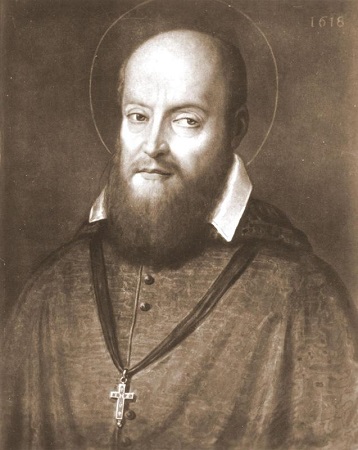
CHAPTER XII
Fifth Meditation - Death.
Preparation.
1. Place yourself in the Presence of God and ask Him to inspire you.
2. Imagine yourself on your death-bed, incurably ill.
Considerations.
1. Consider the uncertainty of the day of your death. One day, my soul, you must depart from this body. When will it be? In winter or summer? In town or country? At home or afar? During the day or the night? With or without warning? As a result of illness of accident? Shall I have a chance to go to Confession? Shall I be assisted by a Priest? Will I be prepared? Unhappily, I know the answer to none of these things. Only one thing is certain - that I shall die, and sooner than I imagine.
2. Consider that then, the world will come to an end as far as you are concerned. You will have no more part in it. It will turn upside down before your eyes, for worldly joys and pleasures and the things you loved in vain will turn into empty dreams and shadows. Fool that I am to offend God for the sake of such trifling vanities. I have forsaken God, and for what - for nothing! On the other hand, devotion and good deeds will be seen as desirable and delightful to and you will ask yourself - why did I not take this beautiful and pleasant path of everlasting joy? At that hour, your sins - which at the time seemed so small - will appear as vast as mountains and your devotions truly small.
3. Consider how reluctantly your soul will bid farewell to this world, to all its riches and vanities, to amusements, friends, family, to everything - and last of all, to your own body, leaving it pale, wasted away, hideous and fearful.
4. Consider how your body will be hurried to the grave and then the world will give no more thought to you than you have given to others. They will say, ‘God rest his soul’ - and that will be the end of it. Such is the pitiless power of death.
5. Consider the destination of your soul once it has left the body. In which direction will it go? It will continue in the same direction as it went on earth!
Affections and Resolutions.
1. Pray to God and cast yourself into His arms. O my God, take me into Thy care on that terrible day; may all other days be sad if only that single day will be a happy one!
2. Despise the world. Since I do not know when I will part from the world, I will not become attached to it. No love for friends or for relatives, save what is holy, save what can last forever. For why should I love them with a love that death can end?
3. I will prepare for that hour and ensure that it may be a happy one. I will do all I can to make my conscience clear and resolve to overcome all my faults and imperfections.
Conclusion.
1. Thank God for inspiring these resolutions and offer them to Him, imploring Him to grant you the grace of a Happy Death through the merits of His Son and through the intercession of the Blessed Virgin Mary and all the Saints.
2. Carry with you always a small Happy Death Crucifix, properly blessed to obtain a Plenary Indulgence at the hour of death, and meditate upon it often.
Our Father, Hail Mary, Glory Be.
Your prayer completed, wander back in spirit among your considerations and gather a bouquet of spiritual thoughts to perfume your whole day.
Saints from East and West
Saint Pacian is chiefly remembered through his writings, for very little is known of his history. At some time in his life he married-probably before he became a priest - and his son, Flavius Dexter, was chamberlain to the Emperor Theodosius and captain of the royal bodyguard under Honorius. Saint Jerome, who was intimate with Dexter, had the greatest regard for the father, whose eloquence, learning and sanctity he extolled while dedicating to the son his Catalogue of Illustrious Men.
Saint Pacian lived to old age and was a voluminous writer; but of his many works the only ones which have come down to us are an exhortation to penance, a sermon on baptism and three epistles addressed to a nobleman called Sympronian, who had embraced the Novatian heresy and had sent Pacian a letter in which he censured the Church for allowing repentance and absolution for all sins and also for taking the title of Catholic. In his reply Saint Pacian makes the now famous retort: "My name is Christian, my surname Catholic. The one puts me in a class, the other gives me a character. The second is a testimonial, the first is a label." Elsewhere he insists that those alone are embraced in the unity of the Church who are united to the chair of St Peter. "To Peter alone did the Lord speak" (Thou art Peter, etc.) "that from him, the one, He might establish unity."
Amongst Saint Pacian's lost writings was one entitled Cervulus, directed against an obscene heathen pageant which took place annually at the new year and in which, apparently, Christians sometimes participated. The performance, which centered round a little stag and which is alluded to by St Ambrose and other writers, consisted of masquerades in which those who took part were dressed up as wild animals.
Like many a modern censor the bishop found that his strictures acted rather as an advertisement, and at the beginning of his treatise on penance he deplores that the chief effect of his censure was to make more people curious to witness the objectionable revels.

Advice You Can Bank On
A Catholic Perspective On Finances
Why did God allow me to lose my job?
Losing a job is rarely seen as a good thing, especially since financial pressures can cause tremendous tensions in a marriage and family. When someone loses a job, he or she may have a tendency to blame people or circumstances or despise God, but God promises to provide for all our needs through the riches of Christ. (See Philippians 4:19.)
By seriously asking the question “Why did God let this happen?” we can begin to discern how God can bring good out of the situation.
When a husband loses his job, God may want to teach him to:
-
Learn to rely on the Lord for provision rather than on an employer.
Scripture affirms that it is God “… that giveth thee power to get wealth” (Deuteronomy 8:18), not an earthly employer. When God removes an earthly source of income, He is affirming our need to totally depend upon Him.
-
Experience the fellowship of receiving “daily bread” rather than monthly paychecks.
The Lord taught us to pray, “Give us this day our daily bread” (Matthew 6:11), not “give us this month our monthly paycheck.” Nevertheless, we have a natural tendency to desire independence and to store up reserves so that we do not need to live from God’s hand to our mouth. God knows that we are closest to Him when we are aware of our daily dependence upon Him. When a person lacks regular employment, he is usually more willing to turn to God to meet his needs.
-
Catch up on home repairs.
Most wives know of many household repairs and projects that have needed a husband’s attention for a long time. If a husband is out of work, he can make completions of these tasks a priority. Some of these projects will require money that he may not have. However, that can motivate him to learn how to get the best buy.
-
Develop frugality and resourcefulness.
The absence of monthly paychecks is a great motivation to be careful in the way we spend money and to look for ways to be frugal and resourceful. Many services that were formerly regarded as conveniences, such as lawn mowing, car washing, maid service, house painting, and plumbing, can no longer be afforded. These needs present opportunities to work together as a family. Needs that require professional assistance can become opportunities to ask wise questions of professionals and to research ways to do home repairs and maintenance without hiring others to do them.
-
Spend more time with your children.
In one well-to-do neighborhood, a father was injured and consequently was unable to work. While he was recuperating at home, he began spending time with his son. Soon, all the children in the neighborhood were envious because this boy had something they did not have: the time and attention of his father.
Many individuals have given testimonies of growing up without much money and cherishing memories of family outings that were free or cost very little. The absence of regular employment provides an ideal opportunity to make special family memories.
-
Increase your understanding of your wife and her responsibilities.
When a man leaves home in the morning and is gone through the day, he cannot observe the unexpected interruptions and pressures that a wife may face. When he is home with the family, he can learn to appreciate the load his wife carries and can help her eliminate little hindrances that make her job more difficult.
-
Detect character weaknesses in your life.
Evaluate why you lost your job. Did deficiencies in your character cause your boss to form a negative opinion of you or question your value to the company? Being without a job provides an opportunity to concentrate on building character and to demonstrate it first of all in your own family.
-
Learn humility and accept assistance from others.
During a time of need, it is not easy to accept gifts from others. A spirit of humility is required to receive their help. This humility opens the door for more of God’s grace. (See James 4:6.)
-
Consider the possibility of starting a home business.
The possibilities for establishing businesses that will meet practical needs are unlimited. If you have a mind to work and a love for people, you may be able to initiate a home business. Concentrate on projects that could result in immediate income, and expand as they prove themselves worthy.
One man went to managers of office buildings and worked out a contract to wash the buildings’ windows twice a year. He now has more business than he can handle and is making $80,000 to $100,000 a year.
-
Consider the option of relocating.
The loss of your job can encourage you to determine if you are in the right location. Does God want you to move closer to relatives or to live in an environment that would be better suited for raising your children?
-
Consider whether you have been faithful to tithe.
God promises to open the windows of heaven and pour out a blessing to those who honor Him with the firstfruits of all their increase. However, if proper tithes and offerings are not given, the devourer snatches away resources. If you have failed to tithe, the loss of a job is a powerful motivation to start tithing with any new income that the Lord provides for you. (See Malachi 3:10–11.)
-
Teach your children to look to the Lord.
By their seeing how insecure “job security” is, sons and daughters are forced to realize that we cannot put our trust in companies or uncertain riches, but only in the living God, Who alone is able to meet our needs.
-
Draw the family together to fast and pray for specific needs.
God promises that if we fast and pray secretly, He will reward us openly. With the loss of a job, a family has many new opportunities to bring specific needs to the Lord and to trust Him. Through times of fasting and prayer, a family can experience a new closeness with the Lord and with each other.
-
Develop compassion for others who have lost their jobs.
Only those who go through the loss of a job can fully understand the pressures and anxieties that occur as a result. As God gives insight and understanding in your situation, you can give comfort to others who have lost their jobs.
-
Concentrate on being a spiritual leader in your home.
The most difficult place to live the Christian life is in your own home. Now you can devote more time to carrying out the functions of a spiritual leader, such as reading and memorizing Scripture, asking family members for specific prayer requests, praying, reading biographies of the heroes of the faith with the family, and helping family members study the Scriptures for themselves.
-
Cleanse your home of anything that should not be in it.
Evil items are so easily brought into the house. Now that you have more time, carefully evaluate all the things in your home and remove any that have a destructive or negative influence on the family’s spiritual life.
-
Clear your home of clutter and sell unneeded items in garage sales.
Now is also the perfect time to clean closets, drawers, the basement, garage, and other places, removing all items that you are not using, and selling as many as possible. Needed items can be put in order.
-
Learn to enjoy what God has given.
It is easy to become dissatisfied with the things we have and to look forward to buying bigger and better items that we may not really need. Without a steady income, you can learn to appreciate what you do have and learn to take better care of your possessions so you can enjoy them longer.
-
Learn how to suffer need.
Paul explained that he learned how to abound and how to suffer need. When you had a regular income, you abounded. Now, you are learning the disciplines of suffering need. This includes learning to go without and experiencing what Paul talked about when he said, “ I count all things to be but loss for the excellent knowledge of Jesus Christ my Lord; for whom I have suffered the loss of all things, and count them but as dung, that I may gain Christ:” (Philippians 3:8).
-
Expose the foolishness of buying unnecessary items.
When you have ample funds, it is tempting to spend extra money on status symbols such as certain brand names of clothing or other items that demonstrate that you are part of the “in” group. With this practice, there is additional pressure to compromise standards so as not to be rejected by those we are trying to imitate. With limited funds, the concern is not for vain prestige, but for daily provisions.
Why did God allow you to lose your job? Perhaps He wanted to bless you with unique opportunities to learn to trust Him more fully, to seek Him more diligently, and to love Him more intimately. Ask God to show you the benefits of your suffering … and He will! Our merciful heavenly Father promises to work all things together for our good, as He conforms us to the image of His Son. (See Romans 8:28–30.)

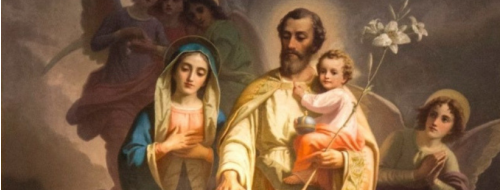 Family Matters
Family Matters
In February's article, “A Prayer Of David”, We gave an introduction to Psalms 144:7-15. (https://www.vaticaninexile.com/january_2023_olive_tree.php “Family Matters”.) This month we study how his prayer was answered.
How the Prayer Was Answered
Now the Lord did not answer David's prayer in his own lifetime, but the Lord did answer his prayer. His son Solomon had very little war during his reign. Consider the difference twenty or thirty years with no war would make. Twenty or thirty years with fathers home everyday guiding the children and teaching them. Twenty or thirty years with men watching over the sheep and farms, and in the streets taking care of things. All the leaders of all the homes in the nation of Israel are home! What happened to Israel in Solomon's day? Israel became the most powerful nation on the face of the earth during Solomon's reign.
Did you ever consider the how's and why's of Israel's testimony? It wasn't because Israel was a mighty nation of war, not in Solomon's reign! In David's reign, the enemies and the nations that lived near Israel trembled in fear. Yes they did! Israel was a mighty force of war and power. David ruled many nations with a rod of iron.
But we come to Solomon's reign of rest from war. It was during this period that many of the nations reverenced Israel. She became a testimony to all the nations far and wide around her. Israel stood out as a nation that was very different from all the other nations. Many of the nations looked on at Israel and said, “Behold a wise and understanding people, a great nation.” (Deuteronomy 4:6b). Israel was healthy, wealthy, and wise, more than all the nations round about them. Many of the nations of the world looked on Israel and said, “There's something special about that nation!”
One of the major reasons for their world-renowned testimony is that during Solomon's reign, the men of war came home! The godly fathers came home! Those men of God who stood out on the battlefield and fought the enemy in the power of the Holy Spirit came home. All the spiritual energy that they were directing toward the battle came home and was directed toward their families!
There is a lot of talk about revival these days and I praise God for revival! I believe in revival, that is, an outpouring of God's Spirit. I pray for and long for revival in the Catholic Church. I hear many praying, “God save the Church through revival”, but if all we see when we think about revival is evangelism and souls returning to the Church, we see only half the picture. The other half of revival is a Church of godly catholic fathers and mothers training their children. One of the clear biblical fruits of revival is a family that loves God with all their heart. Revival is more than a puff of emotions. If it is genuine, it will affect our closest relationships, which is the family, for years to come. If our revival doesn't touch our homes, there is something wrong with it.
So, how does this psalm apply to us? We live in America, and for now we are not being distracted from our duties by a war. Consider what is taking our fathers away from their homes. We live n an unusual society. We are a nation of men that “will be rich” (I Timothy 6:9a) We live in a nation where it is easy to make money. This is encouraging more and more men to “become successful,” and the wives and the children are the ones who are paying for the success. The price being paid is very evident when you look at our overflowing prisons, and at the rising rate of divorce in our land, even among Christians. Let's face it men, prosperity is destroying our precious families one day at a time. My hear unites with the words of David, Lord, bring the fathers home,
That our sons may be as plants grown up in their youth,
That our daughters may be as cornerstones,
Polished after the similitude of a palace.
Prayer
O Lord God, our father, open our prosperous eyes to the reality of the true condition of our families. Bring the fathers home before it is too late, even if it means that we lose everything and find ourselves in poverty, even if we have to draw together just to survive. Plant us fathers back into the center of our homes, like the patriarchs of old. In the name of the Father and of the Son and of the Holy Spirit, Amen.

Lamp and Light Commentary

"Thy word is a lamp to my feet, and a light to my paths." (Psalms 119:105)
Genesis 5-7: Two Men Who Walked With God
We have seen two men who walked with the Devil- Adam and Cain. Now consider two men who walked with God-Enoch and Noah.
In Chapter 5, we read the expression “and he died” eight times. But right in the middle of that chapter, we read of one who did not die at all!! That was Enoch. He walked with God and God took him. To heaven alive. That is a picture of Resurrection life in the midst of death. Enoch was a man who lived in resurrection power, overcame death and was taken up to heaven- a picture of a godly Church living in the midst of spiritual death, overcoming by resurrection power and finally “being caught up into the air, and so shall we be always with the Lord. “ I Thessalonians 4:17
Enoch was probably a godless man for the first 65 years of his life. But at 65 he got a son. He named the boy Methuselah, by divine revelation. “Methuselah” means “At his death, the waters will come forth”. That seems to indicate that God gave Enoch a revelation when his son was born. God told Enoch that when that son died, the world would be judged by a flood of waters. That revelation came first to Enoch and not to Noah. So he named his son Methuselah.
Now when you have a baby, you don't know how long he will live. So every time Methuselah was sick, Enoch would have wondered whether the time for judgment was near. Can you imagine a baby having a name that means, “At his death the flood will come”? Each time you called him, you would be reminded of judgment. And that fear of God's judgment made Enoch walk with God and realize that the things of eternity were more important than the things of time. That was the crisis that made Enoch walk with God every day for the next 300 years.
The Bible says, “the world passeth away” (I John 2:17). If we believe that, we too will realize, as Enoch did, that the things of eternity are more important than the things of time.
God's tremendous longsuffering with man is seen in the fact that He allowed Methuselah to love longer than any other human being-969 years.
For 969 years, whenever people heard Methuselah's name, they heard a message of judgment to come. But the people rejected the message. It was not only Noah who preached about this judgment. Enoch preached it for 300 years too and Methuselah preached it by his name for another 669 years.
Noah also walked with God and preached about judgment for the last 120 years of Methuselah's life. Enoch and Methuselah did not know the details of the flood as clearly as God later revealed to Noah. But they knew that some type of judgment connected with a flood of waters was going to come when Methuselah died.
Jude tells us that Enoch prophesied judgment against all the ungodly people of his time. (Jude vs 14-15). Enoch was a prophet and he walked with God. Adam was 622 years old when Enoch was born, and died at the age of 930 (5:5-23). So Enoch must have often asked Adam about how things were in Eden where Adam himself had once walked with God. And Enoch must have had a great longing to walk with God himself. Enoch became the first man to prove that one could walk with God outside Eden too, Even after sin came into the world, man could walk with God.
I've met a lot of great Preachers and Priest in my life, but I have met very few Priest or Preachers in my life, who produced a longing in my heart from my younger days, to walk with God myself.
Methuselah's grandson was Noah. And Noah lived with Methuselah for 600 years. He must have asked Methuselah many times about how Enoch had walked with God. Into Noah's heart came a longing to walk with God himself. We read in 6:9 that Noah also walked with God. As Noah walked with God, God revealed His purpose of judgment to him.
It was the truth against judgement, against sin that God revealed to the first two people who walked with God (in Scripture). And Enoch and Noah faithfully preached that message, even though no one believed them. Every true prophet of God since then has also preached the same message: God will judge believers and unbelievers for their sins.
Enoch and Noah are the first two preachers mentioned in the Bible and they both walked with God. Would to God that every preacher since then had done the same.
God told Noah to build the ark and Noah immediately began to build it. He did not ask God who was going to pay for the ark. If he had asked God that, God would have told him, “You have to pay for it yourself of course.”
Have you ever heard God tell you that you must pay for the expenses of His work from your own pocket? Most clergy feel that if they do God's work, someone else must pay them for that! But Noah didn't think like that, He supported himself and his family and served the Lord.
Due to the massive abuses of the Televangelists in the 1980s and the gross extravagances of the Prosperity Preachers in the present day, it has become almost impossible to have a biblical conversation about ministry, money and vocation. The New Testament however has a great deal to say on the topic.
Jesus told his disciples:
Freely have you received, freely give. Do not possess gold, nor silver, nor money in your purses: Nor scrip for your journey, nor two coats, nor shoes, nor a staff; for the workman is worthy of his meat. (Matthew 10:8–10)
That paragraph as a whole seems to indicate that those with a spiritual vocation to the priesthood mustn’t look at their calling as a “job” or as a means of getting rich, but they should expect to be supported with what they need for life and ministry.
The Apostle Paul took it that way. He said:
Let the priests that rule well, be esteemed worthy of double honour: especially they who labour in the word and doctrine: For the scripture saith: Thou shalt not muzzle the ox that treadeth out the corn: and, The labourer is worthy of his reward. (1 Timothy 5:17–18)
He also insisted that:
For a bishop must be above reproach, as the steward of God: not proud, not subject to anger, not given to wine, no striker, not greedy of filthy lucre: (Titus 1:7 )
The consistent testimony of the New Testament appears to be that bishops and Priests should make their living from Gospel work.
Preaching, counseling, prayer, and the study of God's word deserves the largest share of our time and attention and therefore it ought to be the means by which a Bishop and Priest supports himself. But it must not be viewed as a means of gain.
A Priest and Bishop should expect those who are benefiting from his ministry to supply his bodily needs, and to supply that which is needed for effective ministry. Beyond that he should harbor no ambition or greed.
Furthermore, the counsel of the New Testament appears to be that if the people receiving the ministry will not provide those things, that should be taken as an indication of their low esteem for the Gospel and should be received by the pastor of that parish as an invitation to move on.
Jesus said:
And if that house be worthy, your peace shall come upon it; but if it be not worthy, your peace shall return to you. And whosoever shall not receive you, (I believe that also includes helping to support your pastor), nor hear your words: going forth out of that house or city shake off the dust from your feet. (Matthew 10:13–14)
Now back to Noah.
People must have asked Noah how the animals would come into the ark, Noah knew that that was God's business and not his. Noah only did what he was supposed to do-build the ark. He left all other matters with God. We too have to do only what God has told us to do. We can leave all the impossibilities with God.
Finally we read that God shut the door. (7:16). It was God who shut the door of the ark, not Noah. God will shut the door of salvation one day when the time is up for entering God's kingdom.
Jim was young, strong, and in business for himself. He was financially secure and looking at a successful future – or so he thought!
As a young child he had attended Mass, was baptized as a baby and even Catechized. He had heard from a very young child that God loved him so much. And that Jesus had come to die on the cross for his sins. But in his age of accountability he had always put off accepting Jesus as His Lord and Savior for himself, saying, “I have plenty of time. I’m too young and too busy to think about God and religion.”
Once when asked if he was to have died at that very moment, would he be prepared for eternity? He admitted that he’d probably go to hell because he hadn’t had time to give Jesus any thought. When asked if that scared him, he said, “a little bit...sometimes, but I have plenty of time. I’ll take care of that when I get older.”
One year later, his day started out like any other; but it didn’t end that way. While returning from work that night, he collided head-on with another car. Suddenly, the “plenty of time” he thought he had was gone. He never regained consciousness, and never again had the opportunity to give his life over to Jesus as Savior and Lord. God had closed the door to salvation for him. His time to repent was over and now he was to face judgement and eternal hell. Don't put off what you can do today.


Books to feed your faith!
Lenten Instructions from the Roman Breviary
$9.95
The Roman Breviary is full of inspirational prayers and lessons. These lessons are compiled from the lessons of Matins. On Sundays and greater feasts Matins consists of three nocturns. Each nocturn consists of three psalms and three lessons. The first nocturn has lessons from Sacred Scripture. Since the Bible is readily available, this is omitted from this work. The second nocturn on the feast of saints gives their life story. It is these stories, which are most instructive. On Sundays, these lessons are an explanation either of the current Scripture or some other inspirational instruction and these are included here. The third nocturn is on the day's Gospel. The first lesson begins with a short quote from the Gospel of the day, followed by the beginning of the instruction. These are included here. On smaller feasts and ferial days, there is only one nocturn of nine psalms and three lessons. In Lent, these lessons are on the day's Gospel, while on other ferial days they are from Scripture. On minor feast days, the first two are from Scripture, the third on the day's feast. In Lent there are forty different Gospels read, and the lessons on these form the bulk of this work. The lessons in the Breviary come from the Fathers of the Church and are quite instructive. This work would serve as a good companion to Sunday Sermons of the Great Fathers, as it covers material not contained in this other excellent work. The Fathers of the Church bring out points we may not have considered in our meditations on the daily Gospels. We pray all find these instructions as fruitful as I have. We have included the instructions for the three Sundays prior to Ash Wednesday, Septuagesima, Sexagesima and Quinquagesima, as they form a remote preparation for the commemoration of the mysteries of our Redemption at the end of Holy Week.
The Liturgical Year: Lent (Volume 5)
$24.95
This is a fifteen volume set, which is being brought back into print for the edification of the Faithful. Anyone who wishes to appreciate the timeless Tridentine Mass and liturgy will find this set a valuable aid in that endeavor. Dom Gueranger has produced a most excellent work, which began the liturgical movement. We pray that this set of books will bring many more to a true appreciation of the Latin Mass and the Divine Office of the Catholic Church. At one time, under the impulse of that Spirit, which animated the admirable Psalmist and the Prophets, she takes the subject of her canticles from the Books of the Old Testament; at another, showing herself to be the daughter and sister of the holy Apostles, she intones the canticles written in the Books of the New Covenant; and finally, remembering that she, too, has had given to her the trumpet and harp, she at times gives way to the Spirit which animates her, and sings her own new canticle. From these three sources comes the divine element which we call the Liturgy. The Prayer of the Church is, therefore, the most pleasing to the ear and heart of God, and therefore the most efficacious of all prayers. Happy, then, is he who prays with the Church, and unites his own petitions with those of this Spouse, who is so dear to her Lord, that he gives her all she asks. It was for this reason that our Blessed Saviour taught us to say our Father, and not my Father; give us, forgive us, deliver us, and not give me, forgive me, deliver me. Hence, we find that, for upwards of a thousand years, the Church, who prays in her temples seven times in the day, and once again during the night, did not pray alone. The people kept her company, and fed themselves with delight on the manna which is hidden under the words and mysteries of the divine Liturgy. Thus initiated into the sacred Cycle of the mysteries of the Christian year, the faithful, attentive to the teachings of the Spirit, came to know the secrets of eternal life ; and, without any further preparation, a Christian was not unfrequently chosen by the Bishops to be a Priest, or even a Bishop, that he might go and pour out on the people the treasures of wisdom and love, which he had drunk in at the very fountain-head. For whilst Prayer said in union with the Church is the light of the understanding, it is the fire of divine love for the heart. The Christian soul neither needs nor wishes to avoid the company of the Church, when she would converse with God, and praise his greatness and his mercy. She knows that the company of the Spouse of Christ could not be a distraction to her. Is not the soul herself a part of this Church, which is the Spouse? Has not Jesus Christ said: Father, may they be one, as we also are one? and, when many are gathered in his name, does not this same Saviour assure us that he is in the midst of them? The soul, therefore, may converse freely with her God, who tells her that he is so near her; she may sing praise, as David did, in the sight of the Angels, whose eternal prayer blends with the prayer which the Church utters in time.
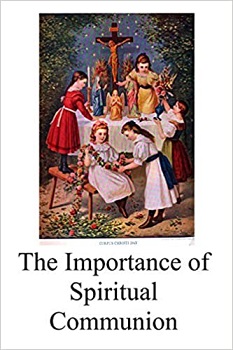
The Importance of Spiritual Communion
Kindle $2.99 / Paperback $5.99
If we cannot receive Holy Communion actually, then let us do so spiritually. These prayers and instructions have been gathered from the Saints and other venerated spiritual writers. Spiritual Communion has been a part of the spiritual life for decades. Growing up I was instructed to make a Spiritual Communion, when I could not go to Communion such as when I assisted at a second Mass. The same is true if one finds oneself at Mass, but not fasting. There are times coming, when it will be difficult, if not impossible to assist at the Holy Sacrifice of the Mass. We should be prepared for such times.

Giancarlo's Classic Spaghetti Aglio e Olio
Simple and delicious
Prep 10 minutes
Cook 22 minutes
Ready In 32 minutes
Ingredients
1 pound uncooked spaghetti
6 cloves garlic, thinly sliced
1/2 cup olive oil
1/4 teaspoon red pepper flakes, or to taste
salt and freshly ground black pepper to taste
1/4 cup chopped fresh Italian parsley
1 cup finely grated Parmigiano-Reggiano cheese
Directions
1. Bring a large pot of lightly salted water to a boil. Cook spaghetti in the boiling water, stirring occasionally until cooked through but firm to the bite, about 12 minutes. Drain and transfer to a pasta bowl.
2. Combine garlic and olive oil in a cold skillet. Cook over medium heat to slowly toast garlic, about 10 minutes. Reduce heat to medium-low when olive oil begins to bubble. Cook and stir until garlic is golden brown, about another 5 minutes. Remove from heat.
3. Stir red pepper flakes, black pepper, and salt into the pasta. Pour in olive oil and garlic, and sprinkle on Italian parsley and half of the Parmigiano-Reggiano cheese; stir until combined.
Serve pasta topped with the remaining Parmigiano-Reggiano cheese.
Arroz Rojo
A simple Lenten dish that goes well as a side or even as a main dish itself! If not using oil during Lent, you can dry-toast the rice in the pan, it will still turn out delicious!
2 cups rice
1 Tablespoon oil
1 garlic clove, diced
3 tomatoes, chopped
½ onion, chopped
4 cups vegetable broth
1 cups peas
2 carrots, chopped
1 chili pepper, chopped
Salt to taste
Add oil to a large pan on low heat.
Add rice and toast until golden.
Add garlic, tomatoes and onion; cook until mixture is soft.
Add the broth, peas, carrots, chili pepper and salt.
When it begins to boil, reduce the heat and cover until rice is fully cooked.
Enjoy!
Makes 4–6 servings
Video sermons and instructions: Timeless timely truths for living the Faith
After Conversion
Gluttony
Curiosity
We All Have a Vocation
Vatican In Exile Podcasts
Family Theater
Family Theater was a program created to promote family unity and each week saw a drama illustrating the importance of family life and prayer. The main reason for the success of this series was undoubtedly due to the numerous Hollywood stars that participated.
Cast: Bing Crosby, Gary Cooper, James Stewart, Gregory Peck, Shirley Temple Director: Fred MacKaye, Dave Young, Joseph Mansfield, Richard Sanville, Jaime del Valle, Mel Williamson, Robert O’Sullivan, John Kelley Producer: Father Patrick Peyton, Bob Longenecker Host: Father Patrick Peyton Writer: True Boardman , Father Patrick Peyton Announcer:Tony LaFrano
Ranger Bill
Ranger Bill was a Christian radio adventure serial, and aimed at the younger generation. This turned out to be one of the most successful radio broadcasts, and with an amazing longevity of over twelve years. The very first fifteen minute episode was aired on October 2, 1950, but this later changed to a half hour episode, beginning May 14, 1954 and running right through until 1962.
Catechism Corner
Catechizing with a fresh perspective. Using the Holy Scriptures and the Catechism of the Council of Trent as foundational bases.
Lamp and Light Bible Study
Lamp and Light Bible Study is not a ‘theological’ study but a ‘life application’ study.
Our in house Priest will show that every single book of the Bible is interesting and has a message for us today. It deals with key aspects of the Christian life and speaks more to the heart than to the head.
Sunday Sermon
The Ave Maria Hour
The Ave Maria Hour first aired on April 26, 1935, on radio station WOR. It was presented by the Franciscan Friars of the Atonement to help the humanitarian work of St. Christopher’s Inn, and during that first show, Servant of God Father Paul of Graymoor talked about the charity involved in caring for the men of the Inn. In 1937, it was estimated that nearly 1 million listeners were tuning in each week, which resulted in large pilgrimages coming to Graymoor.
The popular Ave Maria Hour continued until 1969, encouraging and entertaining listeners. It was heard on more than 350 stations as well as on the Armed Forces Radio Service. Recorded in a studio in New York City and on the grounds of Graymoor, these dramatizations of the lives of the saints, stories from the Gospel, and inspiring accounts of faith received many awards for religious radio programs sponsored by the American Exhibition of Educational Radio and Television programs of Ohio State University. It received the Golden Bell Award in 1959, presented by Ed Sullivan on live television.
The Bible In Living Sound
THE BIBLE IN LIVING SOUND, the original dramatized audio Bible stories . . . really gets kids excited about the Bible! These 450 spiritually enthralling stories, re-enacted with music and lively sound effects, leave impressions of lasting beauty and wonder, putting the listener in the Red Sea at the crossing, beside David as he confronts Goliath, with Mary and Joseph in the stable, and there at the foot of the Cross. These stunning dramatizations captivate listeners of all ages as they are enriched by visualizing the values taught in God's Word. Listeners want to hear these audio Bible stories again and again.

What Is A Day?
Genesis 1:4 tells us that god separated the light from the darkness. This was so that there would be night and day on the earth. It seems that the earth then must have been spinning around, with light shining on the earth, so that as it spun, there would be night and day, just like we have today. Remember, we aren't told where the light came from, but it wasn't the sun at this stage. Presumably God made a special source for light until the fourth day. The sun was created and made to shine light until the fourth day. The sun was created and made to shine light on the earth from day four onward. Note what God's Word states: And he set them in the firmament of heaven to shine upon the earth. And to rule the day and the night, and to divide the light and the darkness. (Genesis 1:17-18, emphasis added). God made sun and moon to rule the day and night that already existed.
When God first made the earth (remember it was a watery blob at this stage), everything was dark. This means the first day started with darkness. The Bible states at the end of Genesis 1:5, ...and there was evening and morning one day. All though some translations use the word “first”, many scholars state that the Hebrew word used for “first” day, really means “one” day. In other words, this was the first of the six days of creation, but it was also defining what one day in this series of six is – a literal approximately 24 hour day.
So, a day is described as having darkness first. Then light. You will be interested to know that the Israelites measured their day starting from sunset (the start of darkness) and ending at the beginning of the next sunset. Thus “evening” (the start of the period of darkness) and “morning” (the start of the light period) describe an ordinary day.
Many other cultures measured their day this way. However, most nations of the world today measure a day from midnight though to the next midnight. Nonetheless, the day is always approximately 24 hours in length – the time it takes for the earth to rotate once on its axis.
I have an exercise for the family. Obtain a globe and a flashlight, hold the flashlight out from the globe so it can act as the source of light from the earth. Now place a piece of paper on the globe around the rest of the way back to your starting point. This represents the next half of the first day.
You have demonstrated a dark period followed by a light period. The first day of creation.

Catechism Catch-Up
Husbands, Love Your Wives

The greatest Bible commands arise out of our most common human needs. As strange as it sounds to courting couples, husbands failing to treasure their wives is the most common problem of marriages. Sadly, as too many a married woman learns, the opposite of love is not always hate; sometimes it is simply neglect.
The contentious woman described so often in Proverbs is a neglected married woman. Being in love when she marries, she has expectations of sharing the life and love of her man. She believes his attentions will bring her fulfillment. At times those expectations are unrealistic. But often, too often, when men have gotten their woman in marriage, they move on to more exciting conquests for their fulfillment. And for the woman, foolishly, her nature drives her to scolding in order to have her husband show her more attention. That so often drives the two further apart.
A married woman without love is vulnerable to many temptations. She will be tempted to fill her empty feelings. Satan’s forces will make sure sin is available within her reach. It may be a forbidden romance. It may be food. It may be bitterness and with it emotional exhaustion. No married man wants to live with the end result of a neglected wife.
A newly married man should understand that any calling in life is for the purpose of refining him. The flesh always recoils at the process of being reshaped or refined. He should see the adjustments of living with his wife in peace and love as part of God’s way of helping him grow spiritually.
One of the basic understandings a man will need is that love is not just an emotion or feeling.
The love men are commanded to have is a choice. It isn’t just something he can have when he feels like it, and let go when he doesn’t. It is a steady decision to think of his wife, and place her interests high in his priority list.
Every husband must settle it in his heart that it is always right for him to love his wife. Loving her will not spoil her, nor raise her expectations beyond livability. Contrariwise, it fills needs and helps her be content. The husband who learns the secret of loving his wife will love himself.
So ought men to love their wives as their own bodies. He that loveth his wife loveth himself. Ephesians 5:28
While love is a strong emotion, it is so much more. It is a choice that godly character makes regardless of changing feelings. Any person who is serving the Lord and is in a legitimate marriage knows that God wants him to live in peace with his spouse. Since marriages are made of two separate entities, couples will find that disagreements, differences in personality and disappointments are part of normal life. These issues have a way of taking romance out of marriage. However, since a person knows God’s will is for him to love, he will love!
The temptation is for a person to feel that if he could change his spouse, then he could love her. Since she won’t change, then he can’t love. The next step to separation is when one feels he should be allowed to follow his feelings. Thus if he no longer feels attracted to his wife, and he is attracted to someone else, then he can follow that attraction.
Jesus’ example makes it clear that love is primarily a choice of the will.
He has chosen to love us in spite of our faults. Love will choose to exclude all others from one’s attentions and believe the best about one’s spouse. Love is the choice to think about what one’s spouse is facing and then use mental energy to assist his spouse in the struggles she faces.
Jesus’ love was demonstrated by putting the good of His long-term relationship with the Church before His immediate comfort. Christ has seen us at our worst. From the days of his earthly ministry, down though the history of the Church age until now, Jesus has reached out to the depraved and offered them love and forgiveness. Even after we are born again we have repeatedly needed Christ’s love and forgiveness.
Had Christ waited until we were desirable to love us, not one of us would be saved today. This example provides inspiration for husbands today. A man comes home remembering the fresh and beautiful woman he once courted. The lady he finds in the kitchen or on the couch may be a far cry from that memory. Perhaps unfinished chores are all around her. Disheveled hair and rumpled clothes reveal she has been caught napping. Then what?
Most of us won’t need to die on a cross to bring our wives to perfection, but we will need to make sacrifices. These sacrifices are not natural for us.
Love consists of being honest with needs and responding with answers that address those specific needs through making personal sacrifice.
When God experienced love for humanity, He did not ask Himself, “How can I give them everything they want? How can I gratify their every wish?” Rather God sought a genuine solution to man’s needs. He knew man needed a sacrificial remedy for his sin. He knew man needed a call to righteousness and holiness. He knew man needed a heavenly kingdom larger than himself to serve. And God provided all those in Christ and His Church.
In a similar manner a man will some day see through the excuses of his wife and be aware of needs in her life. He may see that she lets feelings rule her life, leading her to slothfulness and discouragement because of neglected duties. He may perceive a woman who does not accept rebuke or correction, and therefore cannot keep long-term relationships. Or he catches her on the phone, gossiping about a fellow sister in Christ, again.
Is there a wise way for him to redeem his wife from her selfish course and the reaping it will bring?
The foolish man will attack his wife because of her needs. He will tell her about her laziness, her lack of discipline in her thought patterns or how she doesn’t like to accept reproof from her friends. But will that bring what he desires? His wife is the weaker vessel. Will it work to force this fragile vessel into supposed perfection?
The cowardly husband will choose to avoid the issue. Perhaps he has tried to help his wife see herself before, and he ended up with someone who pouted for days. Only after he apologized and begged her forgiveness did she begin to treat him nicely again.
What will the wise, loving husband do? Can he go get counsel from his Priest or a Spiritual Counselor? Will it work to let a third person into the sacred territory of the marriage? Maybe there is a place for this, but it should not be the first course.
A wise husband will first go to the Lord in prayer. He will ask for wisdom, and he will ask for God to work in his wife’s heart. He will ask God to bring circumstances into their lives so he can open these subjects and they can grow in wisdom together.
And in the meantime...
He will serve her needs unselfishly.
He will help clean up those dirty dishes in the sink, or pick up the laundry scattered around. And he will do it without self-pity. So what if he worked at the job all day? It won’t do permanent damage for him to serve her with a smile.
A husband may be disappointed by how his wife relates to him, but if he is godly, he is to choose to forgive her and love her. It is only normal for hurts to come in life. Of course the higher one’s expectations, the more deeply one is hurt. The person who thinks he deserves “kid gloves” treatment will be repeatedly hurt. So the first thing unselfish love does is changes one’s attitude to “I deserve nothing.”
But even then, love forgives. It is right to humbly share one’s hurt or disappointment in a loving way. However, the time quickly comes to release the hurt in loving forgiveness. Going around with a grieved attitude is childish, not childlike.
When the tables are turned and the husband is at fault, love will lead him to be sincere in his apology. But let it be underscored; saying “I am sorry if you were offended” is not an apology.
The humble loving husband will think through what he did wrong. He will go to his wife and say, “Remember my reaction? I was harsh. I was rude to you.” Then he will give her opportunity to share how this hurt her. Then he will validate her hurt with, “I know I left you down. I am sorry, will you forgive me?” This loving humility rebuilds trust and relationships.
A godly husband will acknowledge his wife’s virtue with praise and encouragement. Some men have the idea that if they praise their wives it will make them proud and unmanageable. This is not love. A loving husband will sense his wife has many discouragements. He will realize he has a ministry in noticing the areas where his wife excels. Where he notices her strengths or sacrifices, he should praise her. A sincere compliment will put joy in a wife’s heart and help her feel loved.
This is not flattery. A husband will learn how much better a wife operates with praise and may be tempted to manipulate his wife to his gratification. A woman who is flattered will be frustrated, will feel used. She will sense her husband is selfish and only wants to praise her so that she keeps feeding his ego. This will quickly run its course. Praise must be genuine.
God’s plan of married love includes fulfillment for both in the marriage bed. Giving his wife “conjugal rights ” and “depriving not” both refer to the tenderness husbands should express in physical affection. A man who takes time and tenderness with his wife will be rewarded in many ways.
A Christian husband will not permit stray affection to come into his heart.
If there are failures he will humbly repent and make it right. The world has always been filled with strange women. Names and faces change, but when the character is of Joseph quality, there will be a Joseph response.
A Christian man will guard his thought life, his eyes and his admiration.
His compliments will be for his own companions. When he notices areas where other women excel, he will dismiss this from his mind and remind himself of the reasons why he chose his wife from the available options.
The Bible always answers our need. The greatest struggle men deal with is to love their wives. But the commandment is also man’s greatest resource. There is no problem a married man will find in his wife that the tool of love will not serve. God’s Word is always right on target.
Scriptures to Meditate on.
Love as Christ Loved.
Ephesians 5:25-33
Give Honor and Benevolence
1 Peter 3:7, I Corinthians 7:3-4, Proverbs 5:15-21,
God’s Hatred for Divorce
Mark 10:11, Malachi 2:14-16
How Suffering Prepared A Leader: The Story Of Joseph

How would you respond if your family despised you so much that they arranged for you to be sold to a slave trader? How would you feel if your boss, whom you had faithfully served with impeccable integrity, was quick to believe a lie about you and subsequently have you thrown into jail? How would you react if a comrade broke a promise and as a result, you spent several years in confinement?
Joseph experienced each of these circumstances. You can read the full account of his sufferings in Genesis 37–50.
God Had a Purpose for Allowing Joseph to Suffer
By Joseph’s own testimony, the sufferings of Joseph—physical, mental, and emotional agonies—had been allowed by God so that Joseph could fulfill God’s plan: to save many lives. “You thought evil against me: [Joseph’s brothers who had sold him into slavery many years previously], but God turned it into good, that he might exalt me, as at present you see, and might save many people.” (Genesis 50:20).
Joseph Rejected Bitterness and Chose to Forgive
As Joseph responded to suffering with faith, meekness, and humility, God molded and shaped a leader. And that leader would not only end up saving his betrayers’ lives, but he would fully forgive them and provide abundantly for their needs. Such is the potential when a man chooses to reject the empty revenge of bitterness and instead to embrace the benefits of suffering.
Why Did God Allow Bad Things to Happen to Joseph?
If Joseph asked you why God allowed him to be sold into slavery by his own brothers; to be torn from his family and home; to be falsely accused by the wife of Potiphar, to whom he had been loyal and devoted; and to be unjustly imprisoned and ignored, how might you answer?
Here are a few possible answers. There are many more.
- To enable him to overcome a prideful attitude and learn humility (See Proverbs 15:33.)
- To teach him how to serve (See Genesis 39:4, 22-23, 40:4; Matthew 20:26-28; and Mark 9:33-35.)
- To train him to be faithful (See Genesis 39:2-6 and Matthew 25:21.)
- To test him in moral purity (See Genesis 39:7-20 and Matthew 5:11-12.)
- To prepare him to comfort others (See Genesis 50:21 and II Corinthians 1:3-5.)
- To prepare him to lead his brothers to repentance (See Proverbs 16:6.)
- To teach him patience (See Genesis 40:1-14, 23; and I Peter 5:10.)
- To enable him to see God accomplish His purposes and fulfill His promises (See Genesis 37:5-11, 41:32, 42:1-5, 45:4-7, and 50:20.)
- To teach him how jealousy can cause suffering (See Genesis 37:3-4 and 17-36.)
- To save many lives (See Genesis 50:20.)
- To let him experience the blessing of God’s favor (See Genesis 39:2-6 and 21-23.)
- To place him in a position to tell Pharaoh of God’s power (See Genesis 41:15-16, 25, 28, 32-33, and 38-44.)
We Can Choose to Trust God, Even as Joseph Did
We are not to regard suffering as a strange occurrence, but rather as a sign of God’s work in our lives. (See I Peter 4:12-19 and Romans 9:14-24.) “Have confidence in the Lord with all thy heart, and lean not upon thy own prudence. In all thy ways think on him, and he will direct thy steps. Be not wise in thy own conceit: fear God, and depart from evil:” (Proverbs 3:5-7).
To Learn More Principles For Life Go To: Resources: Principles of Life

Enjoying the Olive Tree? Why not subscribe today? Click here to go to the FREE scubscription page!


- Please continue to pray for the repose of the soul of the Holy Father, Pope Michael.
- Your prayers and support are asked for the House of Prayer.
- Your prayers and support are asked as we prepare for the purchase of one of several possible parcels of land for the growth of the Church.
- Your prayers and support are asked in a practical way for our domestic missionary work: our vehicles are in need of maintenance and repair! Can you help?
- Please pray for the health of Deacon Stephen and his dear wife.
- Be sure to keep St. Helen Catholic Mission in your prayers. Why not go on over to the site now and see what they have to offer and how you might be able to help!
- We are all praying especially for you, too. May you correspond with every grace of God!
- In what other needs or intentions may we pray for you? Let us know!
- Let us remember that the Church runs on prayer. Without your prayers, God will not work in hearts and souls to bring them to a knowledge of the truth. (I Timothy 2:4)


To Donate online go to:
Donations

To Donate by Mail:
Our address is
Vatican in Exile
423 NE Grattan ST
Topeka, Kansas 66616
Make Checks payable to:
Vatican in Exile


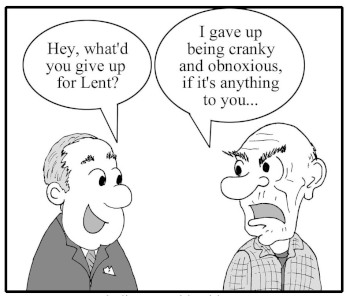
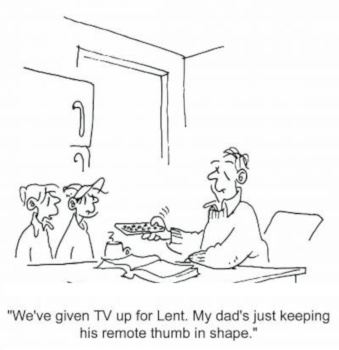
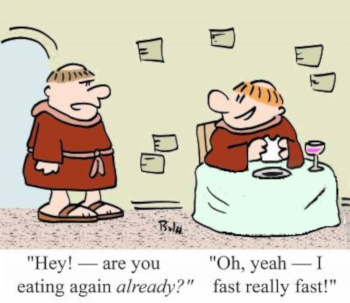
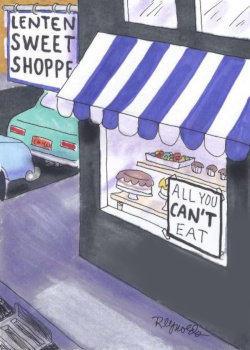
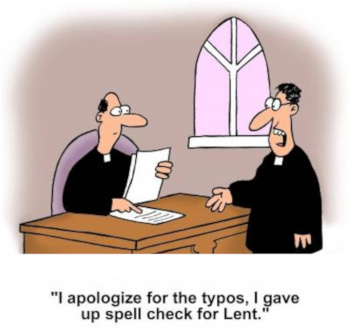
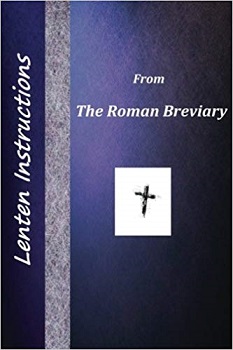
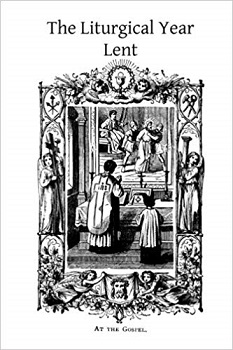









 Follow
Follow


